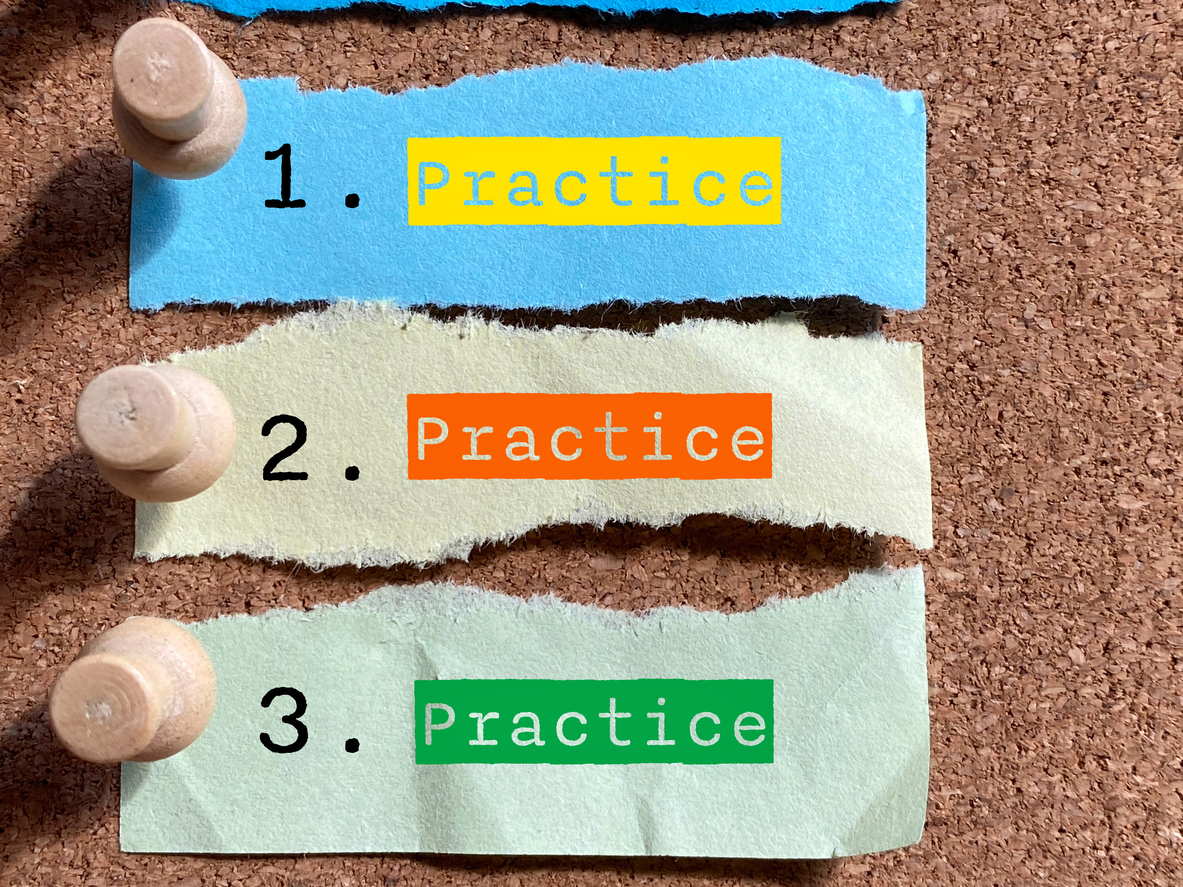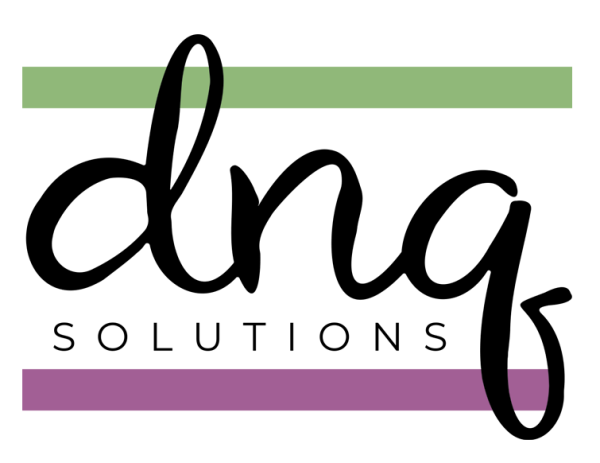
I’m sure you’ve been told many times that the more you do something, the better you will do. My mother used to tell me “Practice makes perfect”. She would say that to me when I was struggling to play a piano piece better or when something I baked didn’t turn out as I had wanted. I know I growled back in response to leave me alone. Have you ever experienced this? Maybe you are currently working on something. If it’s not going as well as you want it to, are you thinking of giving up? I hope you keep at it. The truth is that practice makes progress. Doing something over and over again is what makes it stick in our brain. This is the way in which we create new habits and routines.
Practicing a skill makes it better. This is simple logic. The first time you do something you may do it well or you may flop. The only way to make progress is to do it again. You can apply this principle to almost anything, including organizing your home.
How to Apply Practice Makes Progress to Organizing Your Home
The Science of Practice and Neural Pathways:
I’m reading a fascinating book titled Seven and a Half Lessons About the Brain by Lisa Feldman Barrett. In all honesty I love reading about the brain and how it works and do so frequently. I was aware of neural pathways and had a good working knowledge of the ways in which we, as humans, develop habits. This book has turned what I thought I knew and understood about the brain upside down. It’s a short book. I think you’ll be just as surprised by the new information as I was. Read the book to learn more.
One of the things that Dr. Barrett explains is that repeatedly practicing something is the only way to change how you do something. Through practice you make progress and create a new neural pathway. The more you practice, the more automatic a behavior becomes.
Let’s relate this theory to organizing the things in your home.
If your goal is to control the clutter in your home, the more you practice decluttering the easier and less of a chore it will become.
Fixed vs. Growth Mindset in Home Organization:
Are you familiar with this quote from Henry Ford, “Whether you think you can or you think you can’t, you’re right”.
This illustrates the concept that if you’ve decided that something is impossible for you to do (like be more organized, get to appointments on time) then it’s going to be difficult for you to accomplish that task. This is a fixed mindset.
A fixed mindset may encourage you to keep things that you know you’re not using. It tells you that you may need it one day so it’s best to keep it just in case. You hang on to things, instead of decluttering and removing the things you don’t need or use.
But if you open your mind to the idea that change is possible then the possibilities are endless.
The Power of Consistent Practice in Organizing:
Here are some simple things you can do to make decluttering and organizing a little easier.
- Practice identifying the things you know you need, use, and love.
- Set aside 10 minutes each day
- Focus on one room or area – even one drawer
- Set aside anything that doesn’t fit one of those categories.
- Remove them from your home by donating, selling, recycling, or tossing
Another simple exercise is to walk around your house and identify the function of each space. For instance, is the dining room a place for eating or is it the craft and study zone?
After you identify what you want to do in each space think about the things that support those activities.
Next only keep things in the room which support the function of the space.
It’s OK if some rooms have a dual purpose. Understand that as you are decluttering.
Create a schedule for yourself which allows you to spend 10 minutes or so decluttering in each area of your home at least once a week.
Growth Mindset in Action:
One of my clients was in danger of falling and hurting themselves inside their home because they had too many things in piles scattered around.
They wanted to reduce the piles and find homes for the things they had saved. The problem was there was very little space in the home to put things away.
We decided to go through one pile at a time and sort it into keep, donate (or sell), recycle, or toss.
As we went through the piles my client realized that they didn’t even know what some things were. Those were easy to donate.
Other things were supposed to be gifts but the person for whom the gift was intended wouldn’t want it now, too much time had passed. Those things could also be donated.
Some things were in a pile because they needed to be fixed. My client admitted they were not going to fix them. Those things we recycled.
As time went on, we made faster and faster progress sorting the piles. Areas of their home are now easier to access and there are no tripping hazards.
Conclusion:
Organizing, like every other thing you do, can be done better with practice. You decide just how organized you want to be. Maybe you like a little clutter around, maybe you are more of a minimalist. That’s fine. If being better organized is something you want, then you will only make progress by intentionally practicing.
Take it slowly.
Don’t change everything at once.
Pick a place to start and then make small incremental changes in that space or with that routine.
If you’d like some help with organizing your home reach out to me to schedule a free 30-minute phone conversation. You can email me at: dnqsolutions@gmail.com I offer both in-person and virtual organizing sessions.
Diane N. Quintana is the owner of DNQ Solutions, LLC. She is an ADHD Organizing Specialist, a Hoarding Specialist, and a Chronic Disorganization Specialist. Diane is also an ICD Master Trainer, Certified Professional Organizer in Chronic Disorganization, Certified Professional Organizer and co-owner of Release Repurpose Reorganize LLC based in Atlanta, Georgia. She specializes in residential and home-office organizing.


The Feldman Barrett book sounds intriguing. Understanding the brain even a little bit better helps us help our clients understand themselves and find support in novel ways.
I hated practicing the piano, too. In general, I liked doing what I was good at and bristled at having to put any effort into something where I didn’t already excel. I liked reading but not math. I liked academics but hated athletics. And oh, my, I was so bad at playing the piano, which frustrated me because I loved music. Not being able to take what was in my head and deliver it as expected was enough to make me want to quit, and eventually actually quit.
I wanted to be good at French, and perhaps I never practiced enough, at least not in a way that made it concrete for me. But for the last six years, I’ve been studying and practicing Italian every single day for 20-30 minutes, and while I’ll never be fluent, the practice really did make the Italian language more understandable. So, I absolutely believe in the growth mindset as undergirding all forward momentum. I’ll be eager to check out Seven and a Half Lessons and learn more! Thank you for sharing this material!
Thank you, Julie. I grew up speaking english, spanish, and french. Something else Dr. Barrett points out is that it is easier to learn a language when you’re young. Unfortunately, I have not kept those langauages up by practicing them. I’m happy that you are practicing the Italian.
My mom always told me “practice makes perfect” and yes, I rolled my eyes too! I definitely agree, a growth mindset is imperative and slow but surely everything will come together! Never give up!
Thank you, Florena
Practice makes progress. =) I love that. I, too, love to read books about brains. I will have to check out Lisa’s book. Thanks for sharing.
I think you will find it fascinating!
I love this rephrasing of the familiar “practice makes perfect” mantra. I never felt like I ended up being perfect anything, so it was kind of a negative phrase.
In contrast, progress feels very positive and exciting. I guess I might like to have the feeling that I can finally get so good at something that it feels like I have fully mastered it, and I think this is what you are saying in this post. It takes time to develop that neural pathway.
I have a client with OCD, and the same can work against you. A neural pathway can get well-worn over time that leads the person to have extreme anxiety. It is very hard to get the brain to consider another thinking pathway. I’ve heard it described as walking through a field of high grass, making a path over time that is easy to walk on, and then deciding to start walking in a new direction, where the grass is very tall again. It takes effort. But effort should not be feared. Effort is simply movement in the right direction.
Wonderful perspective here!
Thank you very much, Seana
This book sounds fascinating. I’m adding it to my reading list now.
Repetition is the way to build new neural pathways. That is one of the concepts behind why virtual organizing is so effective. It encourages regular “practice” of new habits with built in accountability and support. Because the clients are the ‘doers’ and take ownership of the organizing process in a way different from in-person organizing, they make fantastic progress. They build those neural pathways more quickly and have the support in place to be more consistent in their efforts.
Thank you, Linda. I hadn’t realized this is one of the benefits of virtual organizing!